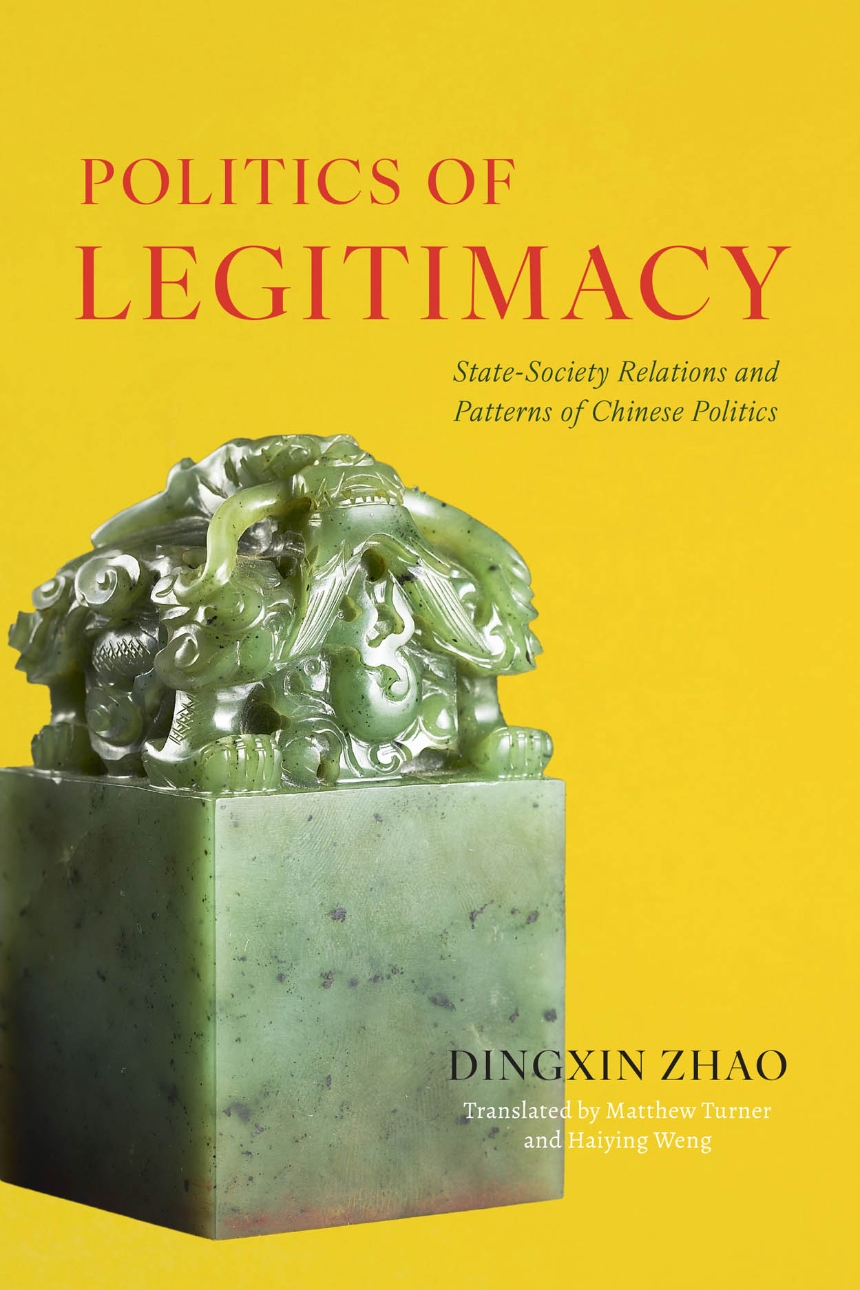Politics of Legitimacy
State-Society Relations and Patterns of Chinese Politics
9780226833767
9780226829302
9780226833750
Politics of Legitimacy
State-Society Relations and Patterns of Chinese Politics
A sweeping work on China that interrogates how states gain, maintain, and lose legitimacy.
The Chinese communist state has survived massive social changes, including the introduction of capitalist markets, an ongoing explosion of technological innovation, and an unprecedented jump in wealth and education, accompanied by a major cultural transformation. How has China managed to maintain its power even as the ground has so profoundly shifted? In Politics of Legitimacy, Dingxin Zhao argues that state power can be legitimized in three ideal-typical ways: a set of values upheld by the state (ideological legitimacy), recognized political processes such as regular competitive elections (procedural legitimacy), and the state’s capacity to provide public goods (performance legitimacy).
Building on this theoretical framework, Zhao analyzes different aspects of Chinese politics, including the tragic ending of the 1989 pro-democracy movement, the weak development of mass-based nationalism in post-Mao China, the reasons behind China’s economic success, the anti-establishment tendency of the Chinese mass media and social media, and the sources of political tension in China, despite a superb economy. Moreover, Zhao’s innovative framework is widely applicable beyond China, shifting our attention from regime-type categories to the tools and relationships that determine their survival or collapse, and illuminating the current global emergence of conservatism and religious nationalism.
The Chinese communist state has survived massive social changes, including the introduction of capitalist markets, an ongoing explosion of technological innovation, and an unprecedented jump in wealth and education, accompanied by a major cultural transformation. How has China managed to maintain its power even as the ground has so profoundly shifted? In Politics of Legitimacy, Dingxin Zhao argues that state power can be legitimized in three ideal-typical ways: a set of values upheld by the state (ideological legitimacy), recognized political processes such as regular competitive elections (procedural legitimacy), and the state’s capacity to provide public goods (performance legitimacy).
Building on this theoretical framework, Zhao analyzes different aspects of Chinese politics, including the tragic ending of the 1989 pro-democracy movement, the weak development of mass-based nationalism in post-Mao China, the reasons behind China’s economic success, the anti-establishment tendency of the Chinese mass media and social media, and the sources of political tension in China, despite a superb economy. Moreover, Zhao’s innovative framework is widely applicable beyond China, shifting our attention from regime-type categories to the tools and relationships that determine their survival or collapse, and illuminating the current global emergence of conservatism and religious nationalism.
328 pages | 1 halftones, 2 tables | 6 x 9
Asian Studies: East Asia
Sociology: Formal and Complex Organizations, Individual, State and Society, Social Change, Social Movements, Political Sociology, Theory and Sociology of Knowledge
Table of Contents
Introduction
Part 1: Theoretical Exploration
Chapter 1: Sources of Political Legitimacy and Patterns of State-Society Relations
Chapter 2: The Mandate of Heaven and Performance Legitimation in Historical and Contemporary China
Chapter 3: The Vitality and Limits of Democracy and China’s Way Forward
Part 2: State Legitimacy and Economic Development
Chapter 4: The Defensive Regime and Modernization
Chapter 5: Performance Legitimacy and China’s Economic Miracle
Chapter 6: Path Independence and Policy Irrelevance: The Key of China’s Economic Success
Part 3: Legitimacy and Pattern of Protest
Chapter 7: Sources of State Legitimacy and Development of the 1989 Student Movement
Chapter 8: Student Protest After the Bombing of the Chinese Embassy in Belgrade
Chapter 9: Is There a Danger of Revolution in China Today?
Part 4: State Legitimacy, Media, and Public Opinion
Chapter 10: News Media and Social Movements Without Hegemonic Culture
Chapter 11: Social Media and the London Riots
Chapter 12: Weibo, Public Spaces, and China’s Development
Conclusion
Epilogue
Notes
Bibliography
Index
Part 1: Theoretical Exploration
Chapter 1: Sources of Political Legitimacy and Patterns of State-Society Relations
Chapter 2: The Mandate of Heaven and Performance Legitimation in Historical and Contemporary China
Chapter 3: The Vitality and Limits of Democracy and China’s Way Forward
Part 2: State Legitimacy and Economic Development
Chapter 4: The Defensive Regime and Modernization
Chapter 5: Performance Legitimacy and China’s Economic Miracle
Chapter 6: Path Independence and Policy Irrelevance: The Key of China’s Economic Success
Part 3: Legitimacy and Pattern of Protest
Chapter 7: Sources of State Legitimacy and Development of the 1989 Student Movement
Chapter 8: Student Protest After the Bombing of the Chinese Embassy in Belgrade
Chapter 9: Is There a Danger of Revolution in China Today?
Part 4: State Legitimacy, Media, and Public Opinion
Chapter 10: News Media and Social Movements Without Hegemonic Culture
Chapter 11: Social Media and the London Riots
Chapter 12: Weibo, Public Spaces, and China’s Development
Conclusion
Epilogue
Notes
Bibliography
Index
